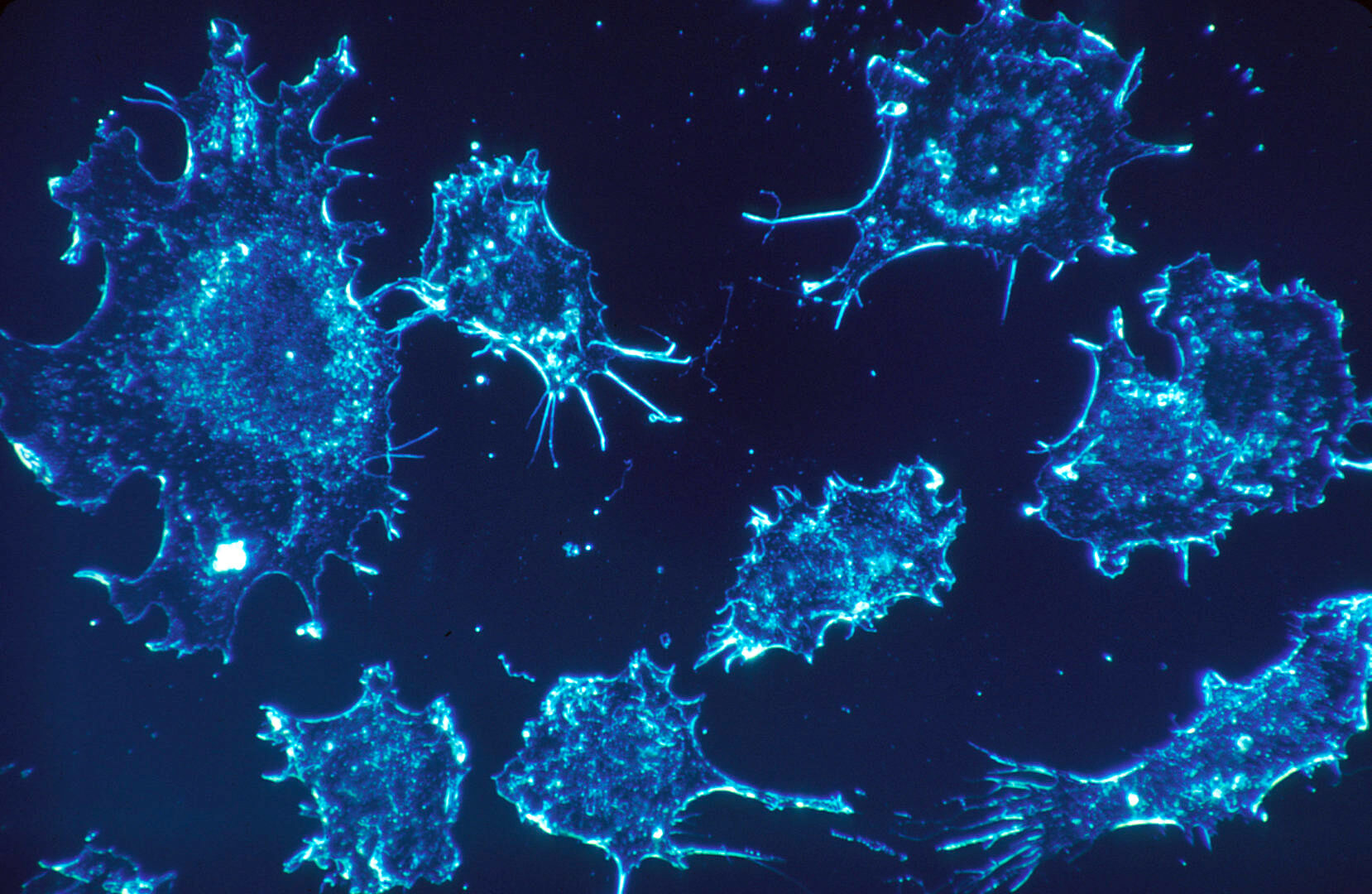“Cancer cells are junkies,” said Nicholas Graham, an assistant professor within the Mork Family Department of Chemical Engineering and Materials Science at USC Viterbi.
In fact, they are addicted to glucose. Graham’s work builds on the research of Nobel Prize winner Otto Warburg, a German chemist who first identified the ravenous appetite of cancer cells for glucose in the early 20th century, a phenomenon called the Warburg effect.
For the past year, Graham’s team has studied cancer cell lines in vitro and monitored metabolic changes as normal cells turn cancerous. They are looking at how cells in the toughest brain cancer, glioblastoma, and the most aggressive and deadly form of breast cancer, triple-negative breast cancer, fuel themselves by gorging on glucose, and how the cells’ signaling pathways (chemical signals that direct cells to take a particular action) could go awry and alter cancer cell metabolism. By searching for metabolic vulnerabilities and their underlying signaling networks, Graham hopes to design novel drug therapies that may prove useful in clinical settings.
Cancer cells are junkies.
Specifically, the researchers are feeding heavy isotope-labeled nutrients to cells and then tracing how these nutrients are incorporated into the building blocks of cells, using a technology called mass spectrometry. In parallel, they monitor the signaling pathways activated in cancer cells and later build systems biology models of how these signaling and metabolic networks interact.
Graham’s initial question was, what happens if we starve cancer of the glucose it needs to live? Taking away glucose caused cancer cells to turn to alternative signaling networks to a degree never seen in normal cancer cells — as Graham puts it, the cells go “crazy into overdrive. It creates a positive feedback loop. If you hyperactivate these networks, it can cause the cells to die.”
Put another way: “The cancer cell is like a car that is driving fast without a brake,” he explained. “A normal cell senses something is wrong (no glucose is available), so it pumps the brake and stops dividing. It lives to see another day. The cancer cell senses something is wrong and starts driving even faster until it crashes and dies.”





